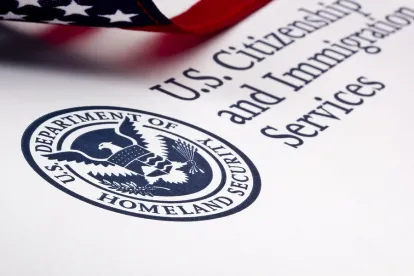Potential change would impact three-year extensions under the American Competitiveness in the Twenty-first Century Act.
Recent press reports suggest that United States Citizenship and Immigration Services (USCIS), the agency responsible for adjudicating H-1B petitions, is studying the possibility of eliminating extensions of stay for some H-1B beneficiaries beyond six years. This is in an apparent attempt to comply with the April 18, 2017 Buy American, Hire American executive order. Such extensions are currently available
-
in one-year increments under Section 106(a) of the American Competitiveness in the Twenty-first Century Act (AC21) if the green card process was started at least one year before the sixth H-1B anniversary is reached (by the filing of a PERM labor certification application or an I-140 petition), and
-
in three-year increments under Section 104(c) of the AC21 if the H-1B beneficiary has an I-40 immigrant petition approval and his or her immigrant priority date is not current.
The elimination of such extensions would be based on an interpretation of certain language in the AC21 statute that states that USCIS “may grant” the extensions. Under this interpretation, the granting of such an extension would not be mandatory, but would be a matter within the discretion of USCIS.
It should be noted, however, that the apparently permissive locution “may grant” appears only in Section 104(c) of the AC21, and is absent from Section 106(a) (which does indicate that such extensions are mandatory). So even if the USCIS ceases to grant three-year extensions under Section 104(c) based upon an exercise of discretion, it will not be able to treat one-year extension requests under Section 106(a) similarly, and must continue granting such extensions provided the relevant requirements are met.
Therefore, the H-1B beneficiaries who would be principally affected by this elimination would be those eligible for a three-year extension but ineligible for a one-year extension. Even if the USCIS begins denying H-1B extensions filed under Section 104(c), it will presumably honor extensions already granted under this provision. Also, H-1B beneficiaries granted Section 104(c) extensions should also be able to seek further one-year extensions under Section 106(a) if eligible.
It bears noting that any such change in policy appears to contradict the intent of Congress in passing Section 104(a) of AC21. The purpose of enacting AC21 was to avoid a situation in which “these immigrants would otherwise be forced to return home at the conclusion of their allotted time in H-1B status, disrupting projects and American workers.” The exemption, as explained in the congressional record, “enables these foreign nationals to remain in H-1B status until they are able to receive an immigrant visa and adjust their status in the United States, thus limiting the disruption to American businesses.”
Timing
Any change impacting eligibility for an AC21 post–sixth year H-1B extension is unlikely to be sudden. A change to the actual language of the AC21 status would require congressional action, and neither the Trump administration nor the USCIS would be able to act unilaterally. Short of rewriting the law, the administration might try to carry out a policy change through agency action. However, any such agency action seeking to reverse a policy that has been in place for 17 years likely requires a notice and comment rulemaking process leading to regulatory change. Failure to follow a regulatory process under the Administrative Procedures Act would likely expose the administration and the agency to legal challenges.





 />i
/>i
